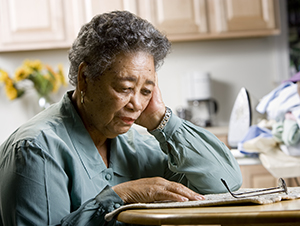Warning Signs of Suicide and What You Can Do

If you think a person could be suicidal, ask, "Have you thought about suicide?" If they say "yes," they may already have a plan for how and when they will attempt it. Find out as much as you can. The more detailed the plan, and the easier it is to carry out, the more danger the person is in right now.
Know the warning signs
The warning signs for suicide include:
-
Threats or talk of suicide
-
Sense of hopelessness
-
Buying a gun or other weapon
-
Statements such as "Soon, I won't be a problem" or "Nothing matters"
-
Giving away items they own, making out a will, or planning their funeral
-
Suddenly being happy or calm after being depressed
-
Not answering questions
-
Engaging in reckless behavior
Pediatric warning signs for suicide include:
- Self-Injury
- Cutting back on activities
- Failing grades
- Frequent stomach/head complaints
- Reckless behavior
- Refusing to talk or having discord with family/friends
- History of running away
- Patient states they would “rather die than be hospitalized”
- Not answering questions
- Engaging in reckless behavior
Factors that put a person at a higher risk of attempting suicide include:
-
A history of suicide in the person's family
-
Previous suicide attempts
-
Alcohol and drug use, along with impulsive behaviors
-
Having a diagnose mood disorder such as depression or bipolar disorder
-
History of trauma or abuse including bullying
-
Significant losses such as a divorce, death of a loved one, financial problems, or legal problems
-
Having access to a lethal weapon (for example firearms in the home)
-
Chronic physical illnesses, including chronic pain
-
Exposure to suicidal behavior of others
Get help
Don't try to handle this alone. You can be the most help by getting the person to a trained professional. Suicidal thinking may be a sign of depression, a serious but treatable illness.
In an emergency—call 911
Don't leave the person alone. Anyone who is at imminent risk of suicide needs psychiatric services right away. The person must be continuously monitored, and never left out of sight. Call 911 or a 24-hour suicide crisis hotline. It can be found in the white pages of your phone book under "Suicide." You can also take the person to the nearest hospital emergency room (ER).
Don't keep it a secret and don't wait
Call a mental health clinic or a licensed mental health professional in your area right away: a psychiatrist, clinical psychologist, psychiatric or licensed clinical social worker, marriage and family counselor, or clergy. Tell them you need help for a person who is thinking about suicide.
Resources
If you or someone you know needs support now call or text 988 or chat 988lifeline.org
For TTY users, use your preferred relay service or dial 711 then 988.
For Additional Support
- Warm Ear Hotline: 866-927-6327
- Friendship Line for Senior Adults: 800-971-0016
- NAMI Hotline: 800-960-6264
© 2000-2025 The StayWell Company, LLC. All rights reserved. This information is not intended as a substitute for professional medical care. Always follow your healthcare professional's instructions.